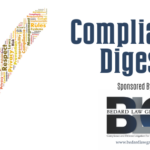Everyone has war stories about credit repair firms that sue on behalf of clients who don’t even know they are now plaintiffs in a lawsuit. A case involving Credit Repair Lawyers of America in which the plaintiff never responded to the firm’s attorneys or to a hearing in front of a federal judge led the defendant to seek attorney’s fees, but precedent in the Ninth Circuit precluded a District Court judge in Arizona from doing so.
A copy of the ruling in the case of Morris v. LVNV Funding can be accessed by clicking here.
Background: The defendant was sued for violating the Fair Debt Collection Practices Act because it allegedly falsely informed the credit reporting agencies that the plaintiff was disputing the underlying debt. An attorney for CRLA withdrew and was replaced by another attorney from the firm, who also filed a motion to withdraw because the plaintiff failed to respond to “repeated attempts” to communicate with him. The judge scheduled a hearing and ordered the plaintiff to appear, but she did not show up. The judge dismissed the case, leading the defendant to file a motion for attorney’s fees. The original motion wasn’t clear whether the defendant was seeking fees from the plaintiff or from her attorneys, so the judge asked for clarification. The defendant submitted an amended motion clarifying that it was seeking fees from CRLA.
The ruling: Precedent in the Ninth Circuit, thanks to Hyde v. Midland Credit, makes it clear that only the plaintiff can be held liable for attorney’s fees and not his or her lawyer, Judge David G. Campbell of the District Court for the District of Arizona ruled. Section 1692k(a)(3) of the FDCPA “authorizes attorney’s fees and costs only against the offending plaintiff,” Judge Campbell noted.
The defendant also tried to argue it was entitled to fees from CRLA under U.S.C. 1927, but that only applies to attorneys who multiply proceedings in a case unreasonable and vexatiously. It does not apply to initial proceedings, Judge Campbell ruled.








